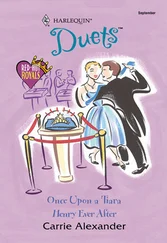Richard Condon - A Trembling Upon Rome
Здесь есть возможность читать онлайн «Richard Condon - A Trembling Upon Rome» весь текст электронной книги совершенно бесплатно (целиком полную версию без сокращений). В некоторых случаях можно слушать аудио, скачать через торрент в формате fb2 и присутствует краткое содержание. Жанр: Триллер, на английском языке. Описание произведения, (предисловие) а так же отзывы посетителей доступны на портале библиотеки ЛибКат.
- Название:A Trembling Upon Rome
- Автор:
- Жанр:
- Год:неизвестен
- ISBN:нет данных
- Рейтинг книги:3 / 5. Голосов: 1
-
Избранное:Добавить в избранное
- Отзывы:
-
Ваша оценка:
- 60
- 1
- 2
- 3
- 4
- 5
A Trembling Upon Rome: краткое содержание, описание и аннотация
Предлагаем к чтению аннотацию, описание, краткое содержание или предисловие (зависит от того, что написал сам автор книги «A Trembling Upon Rome»). Если вы не нашли необходимую информацию о книге — напишите в комментариях, мы постараемся отыскать её.
A Trembling Upon Rome — читать онлайн бесплатно полную книгу (весь текст) целиком
Ниже представлен текст книги, разбитый по страницам. Система сохранения места последней прочитанной страницы, позволяет с удобством читать онлайн бесплатно книгу «A Trembling Upon Rome», без необходимости каждый раз заново искать на чём Вы остановились. Поставьте закладку, и сможете в любой момент перейти на страницу, на которой закончили чтение.
Интервал:
Закладка:

Richard Condon
A Trembling Upon Rome
God averted His eye
As the purpled cardinals
Raised up the lie
Of a guilty Church,
As unctuous Latin psalms
Were chanted,
As Johannus Hus ranted,
As the cardinals swayed And slanted
In mincing lurch,
Jewelled rings extended
To hope, knee bended,
Aspergilla tended,
Censers carrying out the search.
Choirs shrilled their hymns to power,
Holy, holy be its name,
Eternal light and shining tower,
Sword of might and sacred flame.
The Keeners' Manual
`If the future and the past, really, exist, where are they?' St Augustine
Part One
1
I am Franco Ellera, who has been the chamberlain, companion, bodyguard and counsellor to a pope. I became a cardinal of the universal church as a service to my master. I was born a Jew, I have lived as a Jew, and I will die a Jew. My master's lifetime is over, my own is nearly done. The Church accused my lord of a catena of crimes – heresy and simony; murder, sodomy and fornication – when he was merely a man who put power and its sensuality foremost among the things which people need.
His story must be told to raise up his memory so that his life may be seen for what it was, an achievement and an adventure. His place is among the great men of his time. We lived among them and beside all of them: the kings, the popes, the cardinals and the great soldiers. I knew Cosimo di Medici well, and Sigismund, King of Hungary, King of the Romans, King of Bohemia, and the Marchesa di Artegiana. I knew the great cardinals D'Ailly and Spina. I supped with the woman who rid this earth of King Ladislas of Naples. I knew the warrior archbishop John of Nassau and the Duke of Anjou. These people, were the keys to the kingdoms of earth in our time.
The estate of a pope has no peer: an emperor follows him and a king is correspondent; a high cardinal next in dignity: then a king's son, an archbishop his equal; a duke of the blood royal; a bishop, a marquis and earl co-equal; then a viscount, legate, baron, suffragan and mitred abbot; down through doctor of divinity and protonotary to master of chancery, parson, vicar and yeoman of the crown; to worshipful merchants and rich artificers, gentlemen well nurtured and with good manners.
But, a pope is supreme. The Apostles said, 'Behold here are two swords, and the God of Christendom replied that this was enough but not too many. He who denies that the temporal sword is in the power of peter wrongly interprets the word of the Lord when He says, `Put up thy sword in its scabbard.' Both swords, the spiritual and the material, are in the power of the Church; the one, indeed, must be wielded for the Church, the other by the Church; the one by the hand of the pope, the other by the hand of kings and knights, but at the will and sufferance of the pope. The ecclesiastical power is verified by the prophecy of a Jew, Jeremiah, who said, `See, I have this day set thee over the nations and over the kingdoms – and the other things which follow. Therefore, if the earthly power err, it shall be judged by the spiritual power; if the lesser spiritual power err, then it shall be judged by the greater, a pope. A spiritual man judges all things, but he himself is judged by no one, Every human creature is subject to a pope.
That is how the Christians were all taught that it should be. But that is not how the mockery of time saw it happen.
Baldassare Cossa, my master, a great condottiere, the eldest son of the feared pirate family of Procida, creator of the papacy of Alexander V, friend of kings and Cosimo di Medici, the scourge of Ladislas and thus the saviour of Italy, the shatterer of the great schism of the Church, the beloved of countless women and ruler of Christendom which is the world of men, became Pope John XXIII.
I was born in Hamburg in 1355, twelve years before my master. Our city, with others in the league, served as an intermediary between Western Europe and the East – as did Italy. But the Italian East and our East were different things. Their East was older and richer. Ours was in the process of colonization. Russia – if one could call it that and not Western Tibet, for the Mongols ruled there – was in a state of primitive barbarism, covered with forests and fringed by a sea rendered inaccessible by ice.
My father, a cannoneer, was killed at Helsingborg defending the league against Waldemar IV. I was ten years old when my mother, with about a hundred other young German widows, took me aboard a Hanseatic cog in a convoy of six cogs and two escort ships, to sail for the island of Sicily, where husbands were waiting for them. When we were well into the Mediterranean Sea, two ships of the Cossa private fleet attacked us. Our cogs were sunk. My mother drowned. I remember her so well and I love her to this day. I was pulled out of the sea and thrown like a fish into the bottom of a boat. I slept there until I was flung ashore, dragged to a warehouse and locked in, alone and frightened. That is what I remember about my origins.
In time, I was told that I was the slave of Baldassare Cossa, the eldest son of the Duke of Santa Gata, whose pirates had drowned my mother. All the German women who survived were sent off to the slave market at Bari to be sold. My mother escaped that disgrace.
Baldassare Cossa, my master, was five years old. I was seventeen. The duke gave me my new name. I had a serviceable and honourable name Franz Heller which my family had defended throughout time, but to the duke I was nameless. He said at my Christian Baptism ceremony; laid on to entertain his crew ashore, and which I could do nothing to prevent, ‘Ellera means ivy in the Italian language and this Franco Ellera will cling to my son.'
All the Cossas had been pirates for three generations, marauding from the two mile long island of Procida in the Bay of Naples. which they possessed entirely. I was happy on Procida. They were kind, hearty people who lived out their good health on top of their skins. They ate constantly and well. They made love without shame.
The two peaks of Vesuvius rose into the perfect sky south-east of us. Sometimes it sent up columns of smoke which the Cossas told me was proof that there was a hell. It was such an Italian claim to make. They had murdered my mother yet they insisted that we were looking all day at the proof of hell:
The Cossas were large-scale pirates, putting to sea in two great war galleys. La Palazzina was eighty feet long with an overall breadth of nineteen feet. Its oars were arranged on two levels. It was fitted with two masts and lateen sails, manned by a hundred oarsmen and fifty soldiers, all of whom had been sworn in on the gospels. Its poop was protected with fortified towers and, at the bow, there was a castle equipped for offence and defence. With the second galley, three carracks and seven smaller craft, the Cossa stronghold at Procida numbered 766 people, counting sailors, rowers and fighting men, with land-based chandlers, armourers, agents, ecrivains, spies, merchants, slave masters, priests, nuns, wives and children. Baldassare Cossa's father, head of the family, was not only a Neapolitan duke but held four baronies in the kingdom of Naples. His titles, conferred upon his family by popes and kings, included Conte di Troja, Signore di Procida, and Marchese nel suo Libero de Protonotari Partecipanti, as well as Duke of Santa Gata. Baldassare Cossa was his heir.
Читать дальшеИнтервал:
Закладка:
Похожие книги на «A Trembling Upon Rome»
Представляем Вашему вниманию похожие книги на «A Trembling Upon Rome» списком для выбора. Мы отобрали схожую по названию и смыслу литературу в надежде предоставить читателям больше вариантов отыскать новые, интересные, ещё непрочитанные произведения.
Обсуждение, отзывы о книге «A Trembling Upon Rome» и просто собственные мнения читателей. Оставьте ваши комментарии, напишите, что Вы думаете о произведении, его смысле или главных героях. Укажите что конкретно понравилось, а что нет, и почему Вы так считаете.












